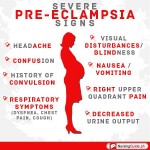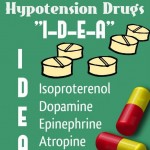Preeclampsia sometimes develops without any symptoms. High blood pressure may develop slowly, but more commonly it has a sudden onset. Monitoring your blood pressure is an important part of prenatal care because the first sign of preeclampsia is commonly a rise in blood pressure. Blood pressure that is 140/90 millimeters of mercury (mm Hg) or greater — documented on two … [Read more...] about Nursing Guide: Pre-eclampsia Signs & Symptoms
Nursing Infographics
Nursing Mnemonics: MONA + LMNOP – What to do 1st when your patient has a “broken heart”
When a patient presents to you with something as life threatening as a heart attack or acute heart failure, it can be hard to think clearly. Use these mnemonics to quickly remember what to do! For a suspected heart attack (myocardial infarction/MI), remember MONA: Morphine Oxygen Nitroglycerin Aspirin (This rule isn’t true for all of heart attacks. For example, in … [Read more...] about Nursing Mnemonics: MONA + LMNOP – What to do 1st when your patient has a “broken heart”
Nursing Mnemonics: Bradycardia & Hypotension Drugs
Nursing Mnemonics: Bradycardia & Hypotension Drugs … [Read more...] about Nursing Mnemonics: Bradycardia & Hypotension Drugs
Nursing Mnemonics: Sputum Cultures
Nursing Mnemonics: Sputum Cultures A sputum culture is a test to detect and identify bacteria or fungi (plural of fungus) that are infecting the lungs or breathing passages. Sputum is a thick fluid produced in the lungs and in the airways leading to the lungs. … [Read more...] about Nursing Mnemonics: Sputum Cultures
Nursing Mnemonics: Blood Transfusion Reaction
Nursing Mnemonics: Blood Transfusion Reaction IF A TRANSFUSION REACTION IS SUSPECTED Stop the transfusion immediately! Disconnect the intravenous line from the needle. Do not disconnect the unit from the IV set. Attach a new IV set and prime with saline, or flush the line with the normal saline used to initiate the transfusion and reconnect the line. Open the line to a … [Read more...] about Nursing Mnemonics: Blood Transfusion Reaction




